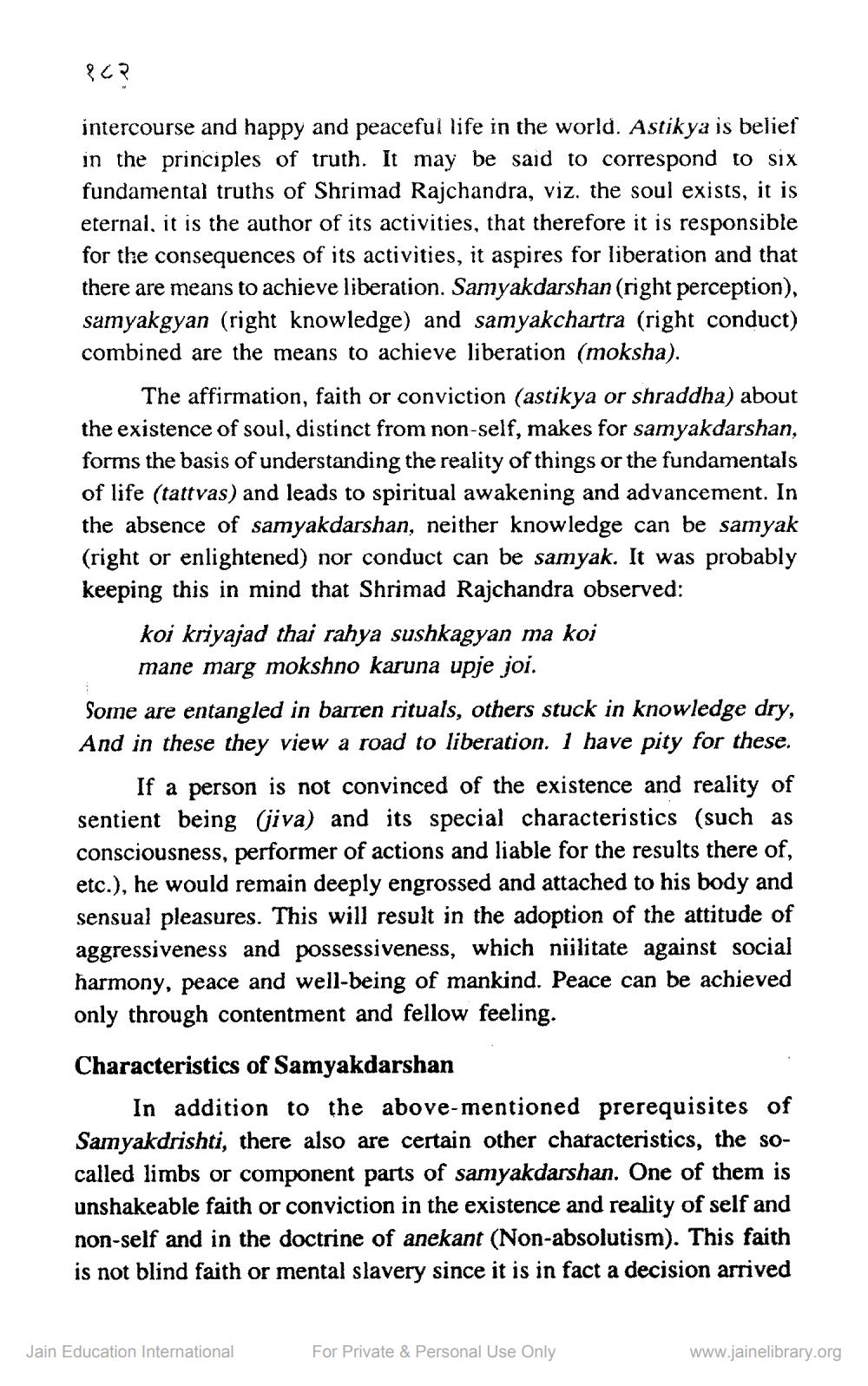________________
१८२
intercourse and happy and peaceful life in the world. Astikya is belief in the principles of truth. It may be said to correspond to six fundamental truths of Shrimad Rajchandra, viz. the soul exists, it is eternal, it is the author of its activities, that therefore it is responsible for the consequences of its activities, it aspires for liberation and that there are means to achieve liberation. Samyakdarshan (right perception), samyakgyan (right knowledge) and samyakchartra (right conduct) combined are the means to achieve liberation (moksha).
The affirmation, faith or conviction (astikya or shraddha) about the existence of soul, distinct from non-self, makes for samyakdarshan, forms the basis of understanding the reality of things or the fundamentals of life (tattvas) and leads to spiritual awakening and advancement. In the absence of samyakdarshan, neither knowledge can be samyak (right or enlightened) nor conduct can be samyak. It was probably keeping this in mind that Shrimad Rajchandra observed:
koi kriyajad thai rahya sushkagyan ma koi mane marg mokshno karuna upje joi.
Some are entangled in barren rituals, others stuck in knowledge dry, And in these they view a road to liberation. 1 have pity for these.
If a person is not convinced of the existence and reality of sentient being (jiva) and its special characteristics (such as consciousness, performer of actions and liable for the results there of, etc.), he would remain deeply engrossed and attached to his body and sensual pleasures. This will result in the adoption of the attitude of aggressiveness and possessiveness, which niilitate against social harmony, peace and well-being of mankind. Peace can be achieved only through contentment and fellow feeling.
Characteristics of Samyakdarshan
In addition to the above-mentioned prerequisites of Samyakdrishti, there also are certain other characteristics, the socalled limbs or component parts of samyakdarshan. One of them is unshakeable faith or conviction in the existence and reality of self and non-self and in the doctrine of anekant (Non-absolutism). This faith is not blind faith or mental slavery since it is in fact a decision arrived
Jain Education International
For Private & Personal Use Only
www.jainelibrary.org




